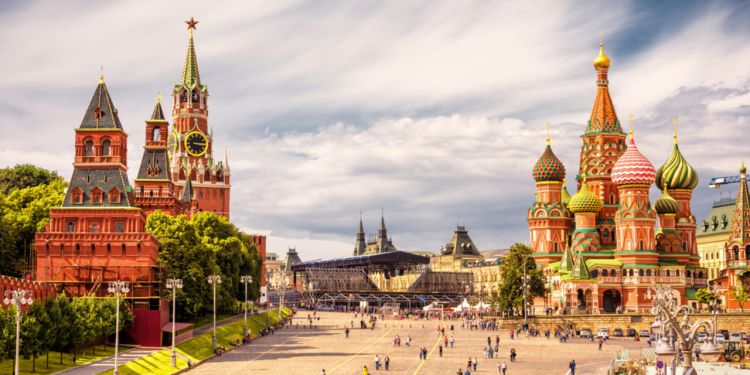
Although not yet well known, the Working Holiday (WHV) program in Russia was signed in 2009. It came into force in 2011, allowing young French people to travel to Russia with the possibility of working there. Unlike other WHVs, this is a multiple-entry visa that allows you to stay in Russia for a maximum of four months.
With a diverse and unusual landscape, vast and extravagant architecture, Russia is, as you already know, the largest country in the world. With its 1,156 years of history, its huge population (count 114 million), and 11 different time zones throughout the country, Russia is home to a rich cultural diversity and natural beauty that is unique in the world.
If you want to enjoy huskies running on the icy mountains of Siberia, admire the natural lights of the Northern Lights, marvel at the domed roofs of St. Basil's Cathedral and discover the world-famous works of art in the Tretyakov Gallery, it may have just the thing for you!
Do you dream of going on holiday to Russia and still have the opportunity to work there? The Working Holiday Program (WHV) can help you make this dream come true. Here's how it works.
Eligibility criteria for the Working Holiday Visa in Russia
There are certain conditions for obtaining a Working Holiday Visa in Russia. These are as follows:
1. Your age
In order to take advantage of the Working Holiday Permit in Russia, you must be between 18 and 30 years of age at the time you apply. Although it is possible to apply to the Russian embassy while you are still 30 years old (i.e., on the eve of your 31st birthday!), it is recommended that you make your application in advance.
2. Your nationality
At the moment, the working holiday permit agreement has only been concluded between the Russian Federation and the Republic of France. The WHV in Russia is, therefore, only available to French nationals at this time.
3. Having a valid passport
As for any other WHV in the world, you will need a valid passport at the time of the visa application. Your passport must also be valid for a minimum of one and a half years after your arrival in Russia.
4. Having a health insurance policy
It is important that you take out health insurance to cover illness, hospitalization, maternity and repatriation for the entire period of your stay in Russia.
Please note that, unlike in other countries, this insurance is not officially required — but some applicants who have not done so have been refused. We recommend that you take out this insurance to ensure that you receive your visa and also to ensure that you are covered if you fall ill.
5. Duration of the visa
The working holiday visa will be valid for four months after your arrival in Russia, but you can renew it for another eight months if you manage to find a job there!
6. The quota per country
In the agreement between Russia and France, a visa quota was decided. Only 500 places are available per year. But don't panic, the quota has never been reached so far, and you can take your time to prepare your application. The quota is renewed every year on January 1st.
7. Having sufficient savings/Minimum budget
It is important that you have some savings when you arrive in the country to cover all your expenses. There is no specific amount mentioned by the Russian government — so you will have to estimate the budget you will need. It is recommended that you have a minimum of €2,000.
8. First-time participation
Only one participation is allowed for the WHV in Russia. Any other WHV participation in the world is not a problem.
9. Buying airline tickets
In addition to the savings/budget you are advised to set aside for your stay, it is important that you have enough money to buy a return air ticket. You can, of course, travel to Russia with a single ticket, but in this case, you will also need to have a budget to buy your return ticket to France. You can book your ticket(s) after you have obtained your visa.
10. Visa fees
Good news! There is no fee for all the paperwork involved in applying for a WHV in Russia. But you will, of course, still have to pay for your trip to the Russian embassy.
Useful address:
Russian embassy in France:
40-50 Bd Lannes,
75116 Paris,
France
Good to know:
You must not be accompanied by any dependents, whether your spouse or children, on your trip to Russia. If you wish to travel with two or more people, each person must apply separately and must also be eligible for the WHV visa. In addition, the application must be made in person at least one month before your intended departure date.
What are the formalities for applying for a Working Holiday Visa in Russia?
The following documents (originals) must be submitted with your application:
- an application form duly completed and signed in black ink
- your passport (valid for at least one and a half years after your visa is affixed and containing at least two blank pages side by side)
- a copy of the first few pages of your passport (containing identity information)
- a passport-size photograph of yourself (showing a clear picture of you on a white background, without glasses)
- your residence permits with a photocopy
- your return tickets (or the equivalent in cash)
- proof of sufficient funds to support yourself for the duration of your stay (a recent bank statement)
- a medical certificate stating that you do not suffer from any communicable disease
- a clean criminal record
- proof of insurance cover.
Important:
These documents, except for the bank statement and passport, must be accompanied by a translation into Russian by a certified translator. The originals will be given back to you after verification.
Things to consider before moving to Russia
The cost of living in Russia
To get an idea of how much you can save when traveling to Russia, it is a good idea to find out about the cost of living; rent, utilities, food and so on.
Here is a table that will give you an idea of the cost of living in Russia - (source Numbeo; as of June 2022):
|
Currency: US Dollars (USD) |
|
|
Rent |
|
|
1-bedroom flat (in the city center) |
546.95 |
|
1-bedroom flat (outside the city center) |
383.37 |
|
3-bedroom flat (city center) |
1,034.15 |
|
3-bedroom flat (outside the city center) |
694.18 |
|
Utilities |
|
|
Water, electricity, air conditioning, heating, waste collection for an 85m² apartment |
129.03 |
|
Internet (60 Mbps or more, ADSL/cable, unlimited data) |
8.35 |
|
Transportation |
|
|
1 ticket (one way) for local transport |
0.57 |
|
Monthly pass for local transport |
36.50 |
|
Shopping/groceries |
|
|
Rice (1 kg) |
1.77 |
|
Milk (1 L) |
1.26 |
|
12 eggs (normal size) |
1.79 |
|
Bread (500 g) |
0.78 |
|
Chicken (1 kg) |
5.40 |
|
Red meat (1 kg) |
10.09 |
|
Oranges (1 kg) |
1.87 |
|
Bananas (1 kg) |
1.56 |
|
Apples (1 kg) |
1.95 |
|
Potatoes (1 kg) |
1.02 |
|
Onions (1 kg) |
0.83 |
|
Water (1.5 L) |
0.76 |
|
Wine (mid-range bottle) |
9.76 |
|
Local beer (0.5 L) |
1.14 |
|
Imported beer (0.33 L) |
2.19 |
|
Cigarettes (pack of 20) |
3.09 |
|
Leisure |
|
|
Movie theatre - 1 seat |
5.69 |
|
Sports club - monthly cost for 1 person |
40.03 |
Looking for work in Russia
Be aware that finding jobs in Russia may not be easy, and it will depend on your experience.
Think about language courses — you could teach your native language. English, French and German are very popular in Russia. Also, consider looking into industries such as translation (if you are bilingual), finance or energy. The following are a few websites that could help you in your search:
- SuperJob.ru
- Xpat Jobs
- The Moscow Expat Site
- Career.ru
- Jobs in Moscow
- CareerJet
- Moscowjob.net
- HeadHunter.ru
Looking for accommodation in Russia
We recommend that you find accommodation before you travel to Russia, especially if you are going in winter! Besides, there is nothing better than warm accommodation that will allow you to rest and feel safe when you leave the airport. The search will, of course, start online. Airbnb, Booking.com, VRBO or Russiau.com will be able to help you find a place that matches your wishes.
Clothing, luggage and equipment you can bring to Russia
You don't need to be told that you should be prepared for a thermal shock during your trip. Take something to cover up and protect yourself from the cold if you are going to Russia in winter: a scarf, gloves, good quality boots, thermal underwear, a long coat, a hat or a cap, and warm socks (or socks for the ladies).
For summer, bring breathable clothing (preferably cotton), light jackets and jumpers, sunglasses and a hat to protect you from the sun.
Getting around Russia
To get around Russia, you will find many options when it comes to land travel - public transport such as buses, metro, trams, or trolleybuses. Taxis are also available. You can easily find car rental companies - with or without a driver. If you choose to drive, please note that you will need to present an international driving license as well as a translated national license. You will need to present your passport, visa, driving license (international and local translated), a registration certificate for the rental car, details of your journey and proof of insurance if you are stopped by the Russian authorities for a traffic check.
A first aid kit
In order to be prepared for possible ailments, it would be a good idea to pack a first aid kit! Of course, you are advised to take a look at the Russian customs webpage to make sure that the medicines/products you would like to bring back to Russia will be accepted on arrival and that they will not cause you any problems.
Steps to take upon your arrival in Russia
Application for extension
An application for a WHV extension can be made to the territorial office of the Federal Service if you have been awarded a contract to work in Russia during your stay. You will then be granted a work permit for the same duration as your employment contract. Please note that the duration of the extension cannot exceed 12 months from the date of your arrival in the country.
For more information, please contact the Russian embassy closest to your place of residence.
Things to see and to do during your WHV in Russia
Moscow
As most international flights arrive or at least stop in Moscow, it is worth planning your trip so that you have at least a few hours to explore the city. Russia's capital is a beautiful mix of greenery, stunning architecture and many historical reminders of the past.
Visitors to Moscow usually begin their exploration in the center, where the Kremlin, Red Square and the colorful St Basil's Cathedral are located. The glass-and-steel-roofed GUM shopping center is also a popular destination — even for tourists who can't afford the luxury brands sold here — and an excellent place to sample authentic Russian food. The Bolshoi Theatre, which is one of the biggest theatres in the world for ballets and operas, is also something you should not miss.
Altai
The majestic Altai Mountains in Siberia are actually a mountain range that links Russia, Mongolia, Kazakhstan and China. Traditionally inhabited by various ethnic groups engaged in horse breeding and forestry, they are also popular tourist spots for locals and tourists alike. There are several beautiful lakes and nature reserves. UNESCO has declared these mountains a World Heritage Site.
Frozen rivers and snow-capped mountains attract skiers and other outdoor enthusiasts in winter, as well as hikers (the Aktru Glacier area is particularly popular for trekking), kayakers and mountaineers in summer. More unusual activities, such as diving, cave exploration and herb and mushroom picking, can also be enjoyed here.
St Petersburg
Although smaller than Moscow, St Petersburg has a lot to offer - believe us, you won't be able to see everything in one day. St. Petersburg is a very European-looking city: art and exquisite architectural details mingle with history at every corner. You are advised to take a walk or bike around to see the city up close.
Useful link:
We do our best to provide accurate and up to date information. However, if you have noticed any inaccuracies in this article, please let us know in the comments section below.

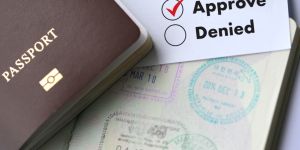
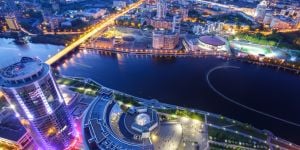
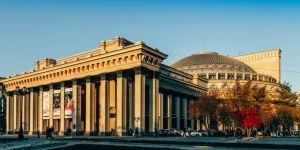
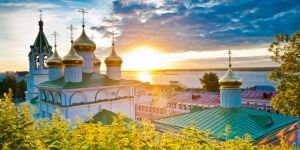


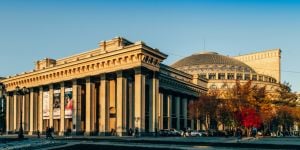



Comments